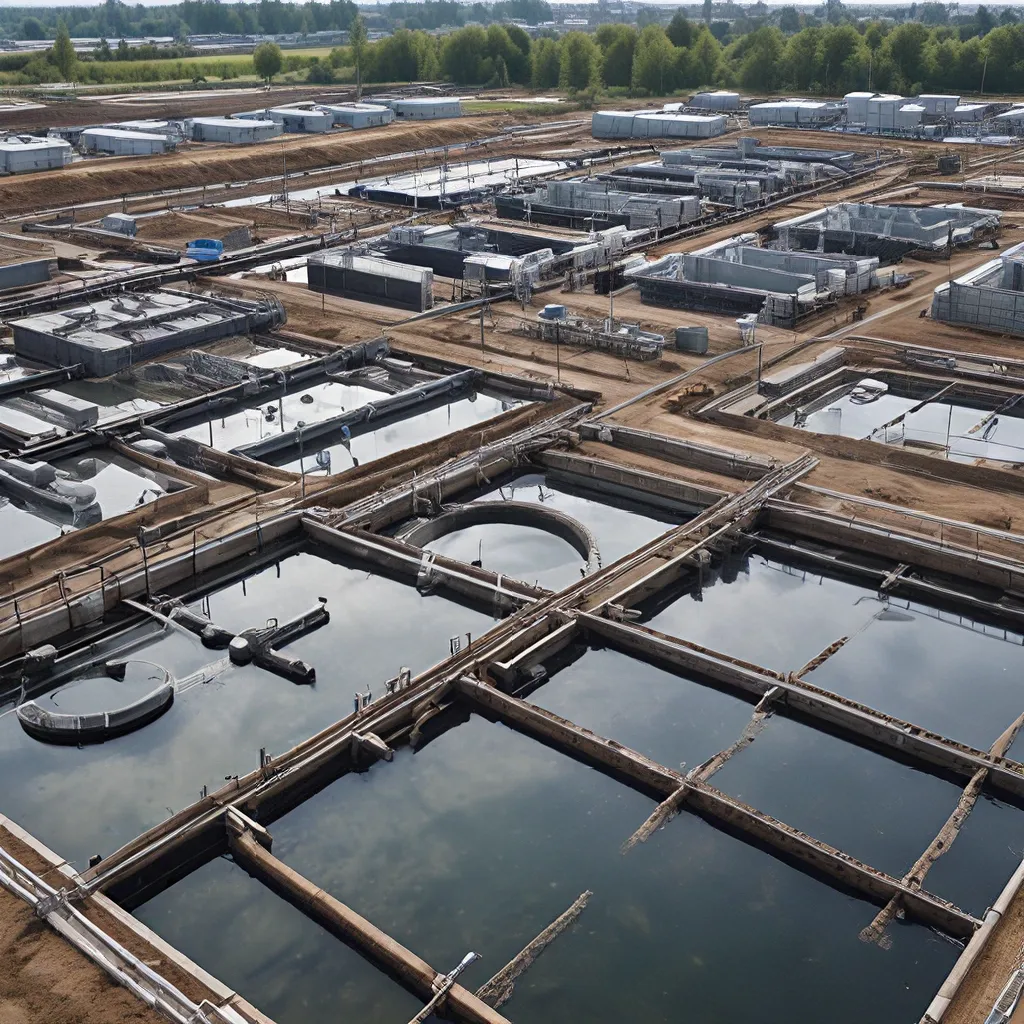
As a process engineer in the water industry, I’ve been closely following the growing buzz around the hydrogen economy and its potential impact on our sector. The transition from a carbon-based economy to one powered by hydrogen has been touted as a critical step in addressing the climate emergency, and it’s no surprise that water and sewerage companies (WASCs) are eager to explore how they can get involved.
The way I see it, the link between wastewater treatment and the hydrogen economy is a fascinating intersection of technology, sustainability, and opportunity. Just imagine – the very facilities that are responsible for cleaning our water could also be producing clean, renewable hydrogen to power our future. It’s a mind-bending concept, but one that is rapidly gaining traction as the global push for decarbonization intensifies.
Unlocking the Potential of Wastewater-Derived Hydrogen
One of the key pathways that WASCs are investigating is the electrolysis of water using renewable electricity. This process, which takes place right at the treatment works, uses the final effluent (FE) as a non-potable source of water to create hydrogen and a pure oxygen co-product. The oxygen, in turn, can be recycled to enhance the aerobic wastewater treatment process on-site, creating an elegant closed-loop system.
But FE electrolysis is just the tip of the iceberg. WASCs are also exploring other innovative pathways to hydrogen production, including:
- Ammonia Synthesis: Leveraging the ammonia produced during sludge treatment processes to extract hydrogen.
- Advanced Thermal Treatment (ATT): Using high-temperature processes to convert sewage sludge into a hydrogen-rich syngas.
- Biogas Pathways: Extracting hydrogen from the biogas generated during anaerobic digestion of wastewater and sludge.
The production potential of these pathways is significant, and they offer the added benefit of enhancing wastewater and sludge treatment processes while reducing overall carbon emissions. It’s a win-win situation that’s got the water sector buzzing with excitement.
Navigating the Complexities of the Hydrogen Economy
Of course, the transition to a hydrogen economy is not without its challenges. As my colleague Stephen Horrax, the Director of Carbon and Energy Consulting at Jacobs, notes, “The picture remains highly complex, and overarching company and sector-level hydrogen strategies still need to be developed.”
One of the key hurdles is the issue of hydrogen transport. As anyone who’s dealt with this temperamental gas can attest, it’s notoriously difficult to compress or liquefy, making it a logistical nightmare to move around. This means that the geography of specific wastewater treatment works and sludge treatment centers will be crucial in determining the export potential of the hydrogen they produce.
Another factor to consider is the availability of supporting infrastructure, such as refueling stations and maintenance facilities for hydrogen-powered heavy-duty vehicles. While the technology is rapidly improving, the lack of a well-established ecosystem can make it challenging for WASCs to seamlessly integrate hydrogen into their operations.
Navigating the Regulatory Landscape
Of course, no discussion of the hydrogen economy would be complete without addressing the web of regulations and incentives that govern the industry. As the Alpha Wastewater team knows all too well, the water sector is subject to a complex regulatory environment, and the introduction of hydrogen production adds another layer of complexity.
In the UK, for example, the Renewable Transport Fuel Obligation (RTFO) provides financial support for the provision of renewable fuels, including hydrogen. Meanwhile, the UK Hydrogen Strategy has set ambitious targets for hydrogen production and usage by 2030 and 2050. But the details are still being hashed out, and it remains to be seen how these policies will ultimately impact the water industry.
Embracing the Uncertainty and Exploring New Possibilities
As I delve deeper into the world of wastewater-derived hydrogen, I can’t help but be struck by the sheer uncertainty and complexity of it all. There are so many variables at play – from the technological challenges to the regulatory landscape to the evolving market dynamics. It’s enough to make even the most seasoned industry veteran’s head spin.
But you know what? I kind of love it. There’s something thrilling about being at the forefront of a rapidly evolving industry, where the possibilities seem limitless and the future is anything but certain. It’s like being an explorer, charting uncharted territory and uncovering new opportunities at every turn.
And that’s exactly what the water sector is doing with the hydrogen economy. We’re not content to sit back and watch the world change; we’re actively shaping it, leveraging our expertise and innovative spirit to create a more sustainable, resilient future.
Sure, there are risks and challenges to navigate. But there are also rewards to be reaped – both for our businesses and for the planet as a whole. By embracing the uncertainty and exploring the possibilities, we have the chance to unlock new revenue streams, enhance our processes, and reduce our carbon footprint in ways we never thought possible.
The Future is (Hydrogen) Bright
As I look ahead, I can’t help but feel a sense of excitement and optimism about the future of the water sector and its role in the hydrogen economy. The Alpha Wastewater team is already leading the way, leveraging their expertise and innovative thinking to identify and pursue hydrogen production opportunities.
And I’m not alone in my enthusiasm. Governments and industries around the world are pouring billions into hydrogen infrastructure and research, recognizing its critical role in the fight against climate change. The water sector is uniquely positioned to be a key player in this rapidly evolving landscape, and I can’t wait to see what we’ll accomplish.
So, who’s ready to dive headfirst into the hydrogen economy and unlock the incredible potential of wastewater-derived hydrogen? I know I am. Let’s explore the possibilities, embrace the uncertainty, and shape the future of our industry and our planet. The future is hydrogen bright, my friends, and I couldn’t be more excited to be a part of it.